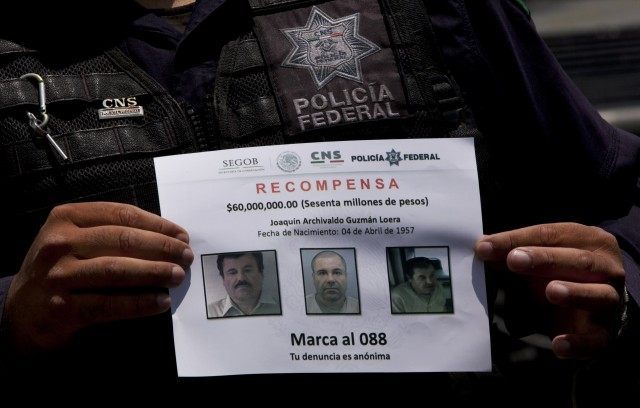Two weeks have passed since the scandalous escape of Mexican drug lord Joaquin “El Chapo” Guzmán from a maximum-security prison, and speculation is running rampant. There are still no solid clues as to where the kingpin may be holed up. In the meantime, fingers are being pointed across our southwest border and serious questions are being raised about Mexico’s ability to control its drug war at any level.
The consensus among drug war observers is that this is easily the lowest point of Mexican President Enrique Peña Nieto’s tenure—a grand irony for sure. The highest point of any Mexican administration in decades was a mere 17 months ago when Guzmán was captured in the coastal city of Mazatlan. Peña Nieto has been mum on the escape, leaving the details to come out in a controlled fashion through Interior Minister Miguel Angel Osorio Chong or National Security Commissioner Monte Alejandro Rubido. Even more embarrassing is the fact that Peña Nieto went on television after Guzmán’s capture and not only made it clear El Chapo would not escape again; he said allowing an escape to happen would be “unforgivable.”
To rub more salt in the wound, the Mexican government announced roughly a week ago that U.S. officials on behalf of the U.S. Attorney’s Office in the Southern District of California had formally requested Guzmán’s extradition on June 25—a mere 16 days before his escape. Peña Nieto had staunchly denied all extradition requests after El Chapo’s capture, choosing to take the stand that Mexico could handle its own business with regards to prosecuting and incarcerating major drug lords. However, according to Mexican publication Proceso, Mexican Congresswoman Adriana Gonzalez spoke to the media and confirmed that if captured a second time, Guzmán would be extradited to the United States.
All of these missteps have led to extensive infighting among Mexican officials and have cast doubt over the entirety of Peña Nieto’s drug war strategy—one that has seen the capture of several major cartel kingpins, but not significantly decreased levels of violence in many parts of the country. His strategy, which he initially intended to deviate significantly from that of his predecessor, has more or less followed the same method of relying on the military—specifically the Mexican navy—to hunt down traffickers. Having a great track record for capturing cartel bosses is one thing; but committing to a meaningful overhaul of the police and criminal justice systems to ensure those arrested are successfully prosecuted and stay in prison is a different story.
On the U.S. side of the border, officials are likely ripping their hair out in one huge “I told you so” moment. Casting blame is useless at this point while El Chapo roams free. Peña Nieto has backed away, since entering office, from relying on too much U.S. assistance in counterdrug operations. But now is not the time for him to assert national pride or go it alone. If the Mexican government is truly committed to national security and recapturing Guzmán, it will swallow that pride and accept all assistance available in order to find him. It may not save Peña Nieto’s approval ratings among the Mexican people, but it may improve cross-border cooperation and send the message that the government is committed—at least at some level—to providing security to its people.
Sylvia Longmire is a border security expert and Contributing Editor for Breitbart Texas. You can read more about cross-border issues in her latest book, Border Insecurity: Why Big Money, Fences, and Drones Aren’t Making Us Safer.

COMMENTS
Please let us know if you're having issues with commenting.